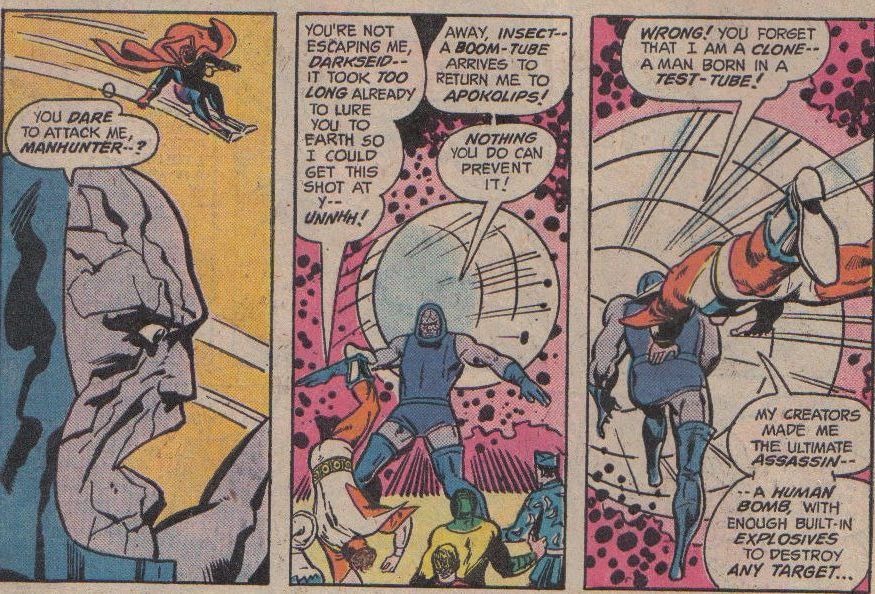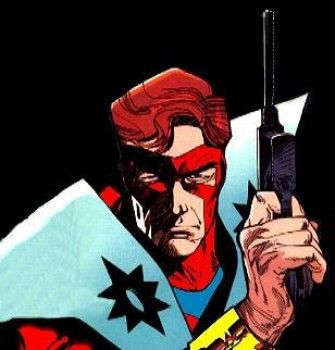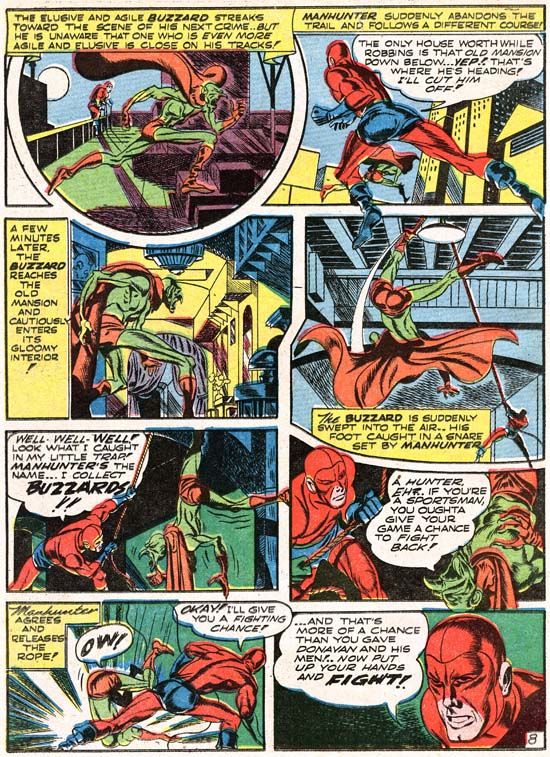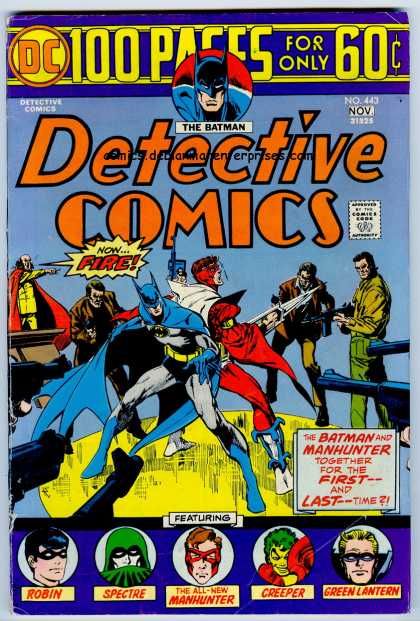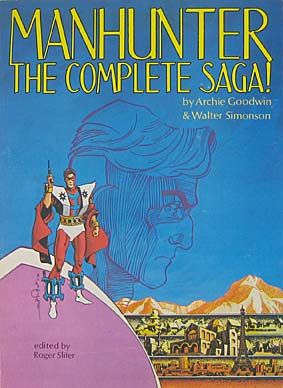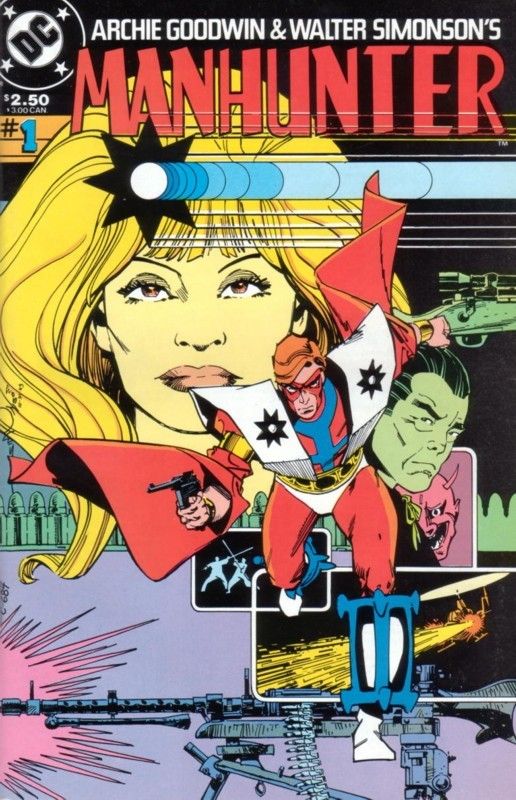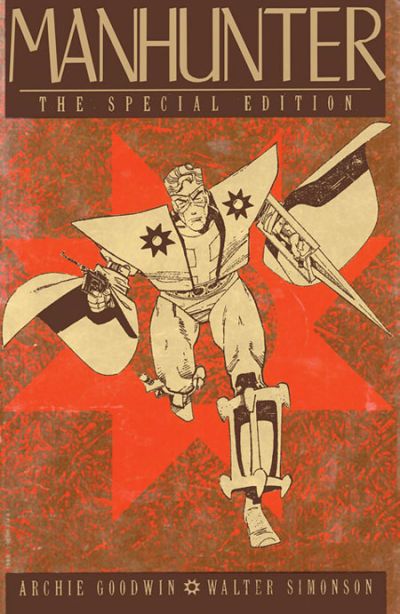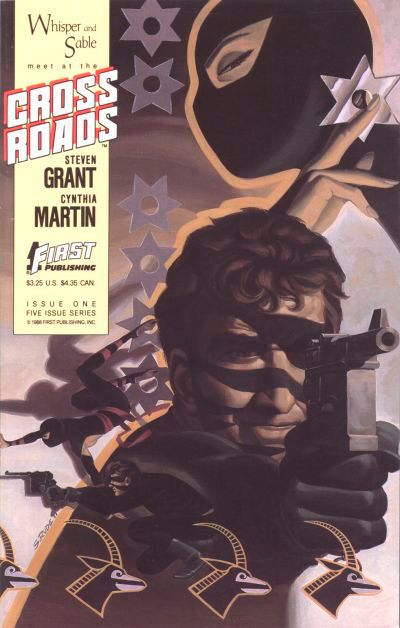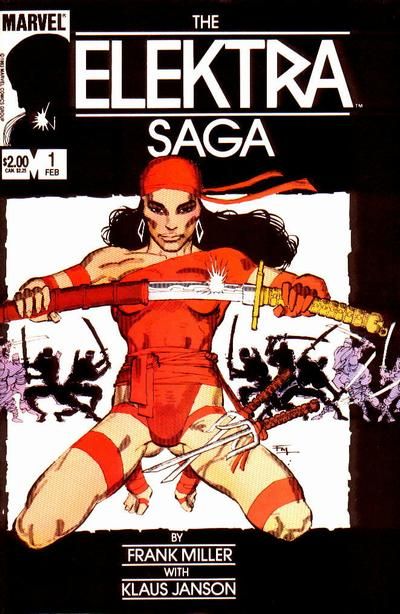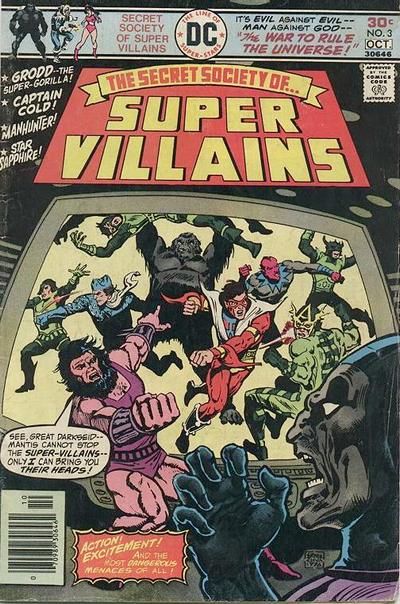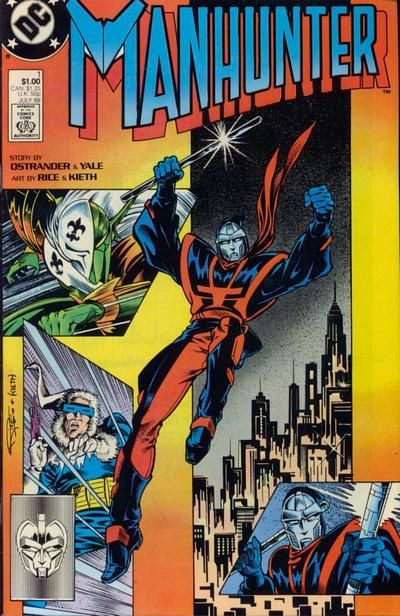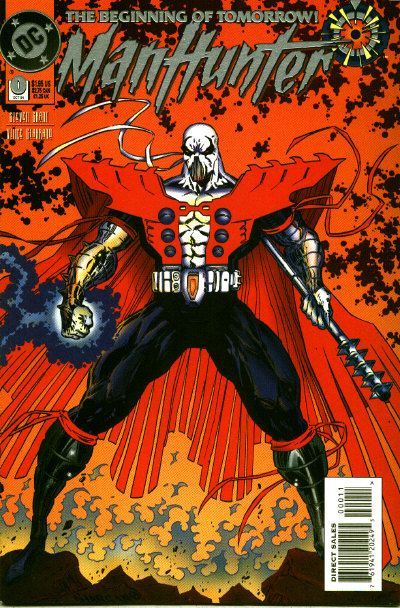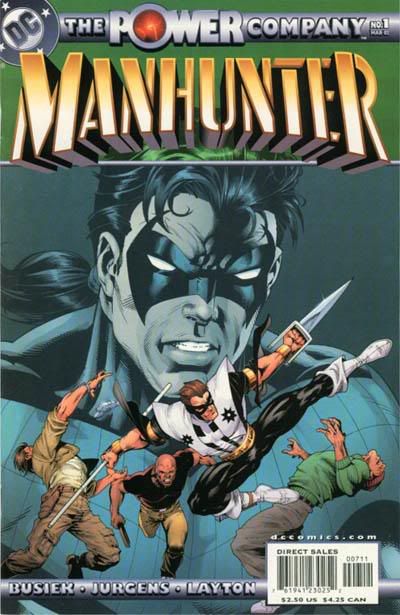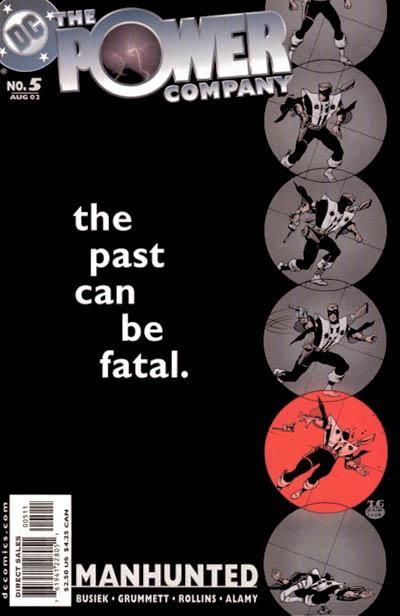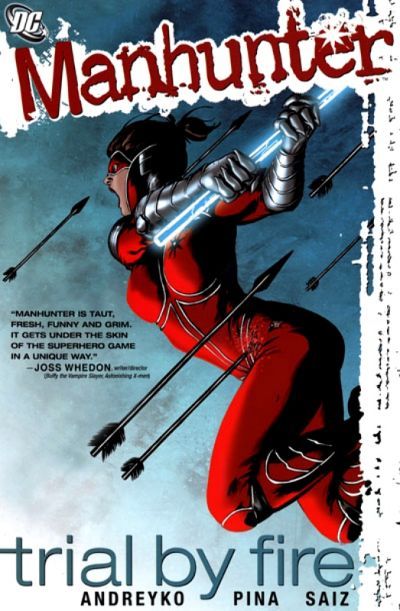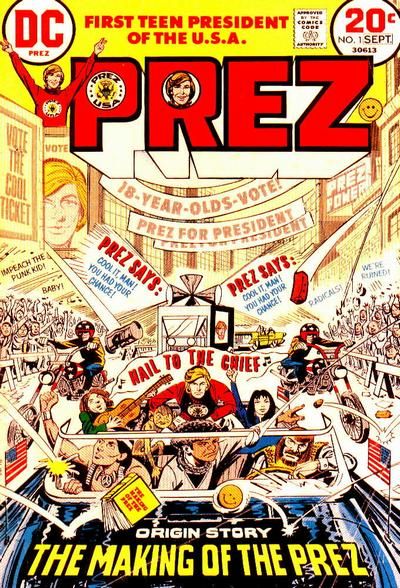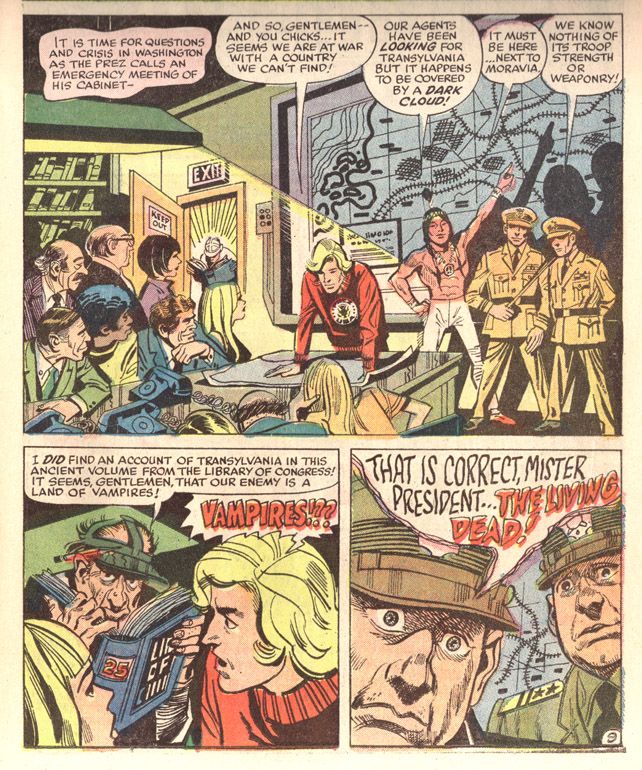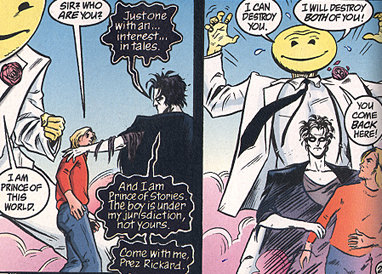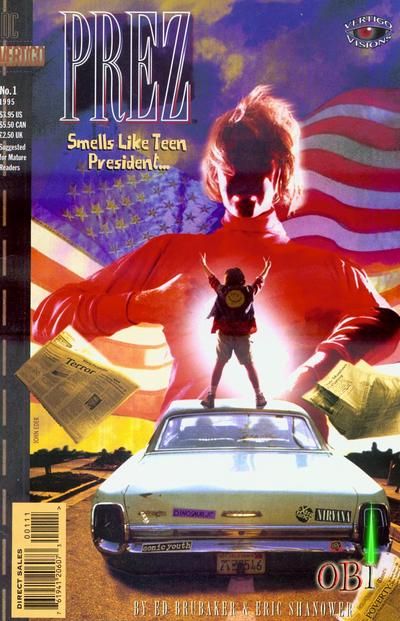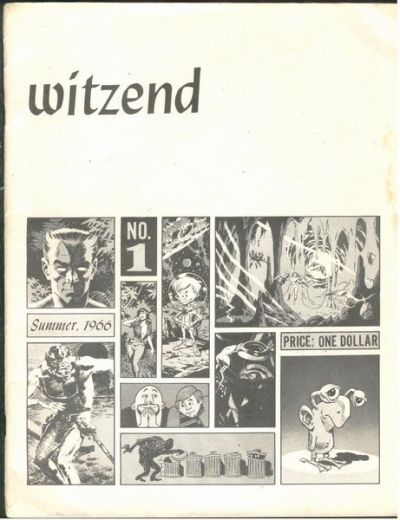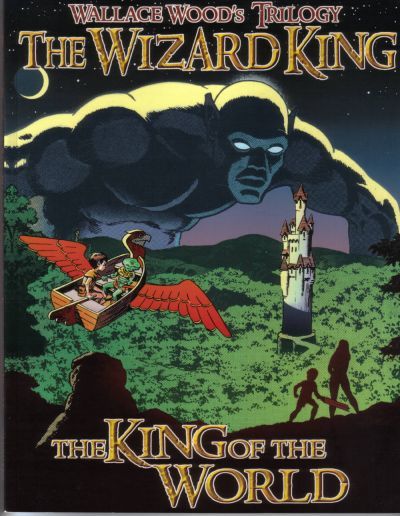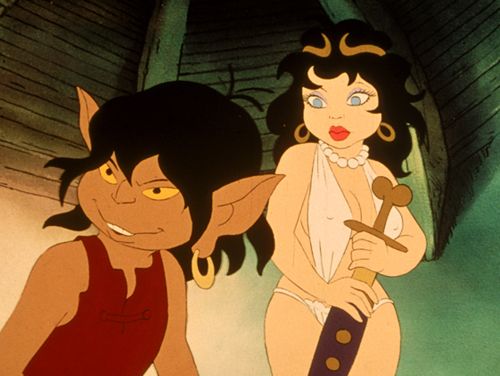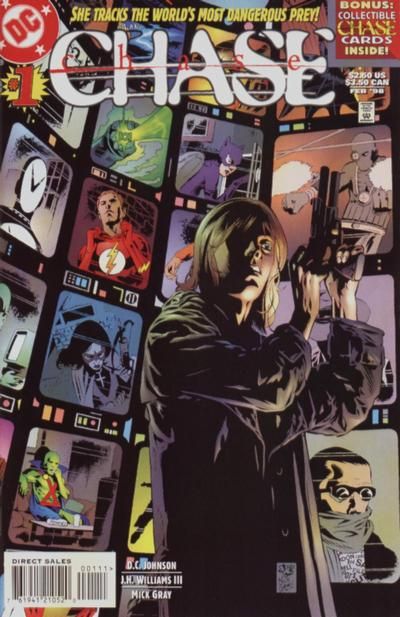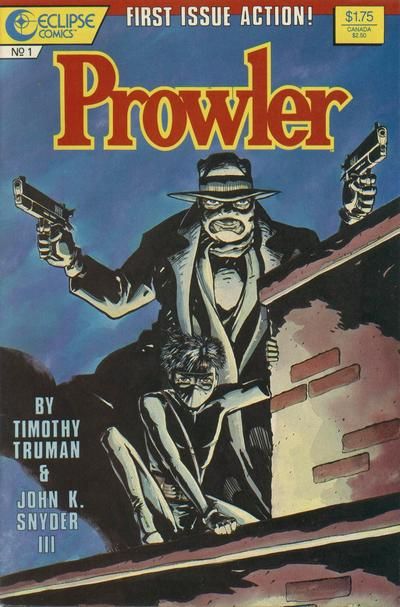Here's another parlor game for you. This one kind of grew out of an idea some friends were kicking around on the CBR forums.
The question put to the floor was, what makes something a "cult" hit, as opposed to being just a clear success or failure?
We were primarily talking about movies, but I thought it was an interesting exercise to apply the idea to comics, as well.
Of course, if you apply the term as it's commonly used to describe movies or television, well, all comic books are "cult" comics. Especially superhero comics -- it's a narrow genre, there aren't that many people who read them, and the ones who do read them tend to be really devoted and knowledgeable. As far as the layman is concerned, technically DC and Marvel's entire output is to a cult audience.
So we have to refine the definition a little bit. Here's what I came up with as characteristics of what I'd consider to be a "cult" comic book series.
In its initial appearance, the series was a short-run commercial failure. Whatever time limit you choose is arbitrary, but for our purposes let's say that to be considered a 'cult' series, whatever its original incarnation might have been, it didn't sell in big numbers and ran two years or less.
Let me walk you through a test case. Take Archie Goodwin and Walt Simonson's Manhunter.
It started as a revival of a Golden-Age B-lister, an obscure little feature from Joe Simon and Jack Kirby that ran in Adventure Comics during the 1940s.
The '40s Adventure Comics version would be called a moderate success, I guess, though the Simon and Kirby Manhunter was never a major player. The feature ran as a backup from #58 to #92 or so, as nearly as I can figure, usually running 8 or 9 pages per issue. But the Goodwin/Simonson revival turned into something else entirely.
Though, as I said, it was not a huge success initially. The revived-and-reimagined Manhunter started as a backup feature in Detective #437, and ended in #443. Six backup 8-page stories and one lead feature (shared with Batman) that clocked in at 20 pages.
By any standard measure it was a commercial failure. Didn't really bump the Detective sales numbers up, didn't get great word of mouth on the book... pretty much was a blip in the history of the title.
But it was admired by people in the business. I think that has to be the second criterion -- a "cult" series should be, despite its commercial failure, a word-of-mouth hit among fellow professionals. Manhunter reputedly blew away every freelancer that saw it in the DC offices at the time. Its writer, Archie Goodwin, was routinely named as "the best writer in comics" by his peers and three of the strip's seven installments won Shazam Awards, as well as a couple more being bestowed on Archie Goodwin for overall Best Writer as well as naming Walt Simonson as Best New Talent in 1973 and 1974. Those were peer awards, voted on by working comics writers and artists -- the membership of the Academy of Comic Book Arts. They're not fan awards.
What else? Well, a "cult" series should be continually discovered by generations of new readers. It doesn't die off.
Manhunter got canceled after seven installments. But it was such a legend that it was collected in trade paperback just four years later, in 1979, which was really unprecedented back then.
It was collected again in the 80's.
And again in 1999, this time with some added material.
And I believe that 1999 edition is still available. The book's still not a hit, not doing big numbers or anything -- but it's there, enough of a perennial that it's worth it to DC to keep it in print.
What else? Well, it should be influential. I think Manhunter certainly qualifies there. Pop quiz -- how many other superhero comics have done espionage, ninjas or clones since 1974?
Yeah, exactly. I don't for a minute imply that the works that came after were stealing from Manhunter, but I'm talking influences here.
And finally... in comics, a "cult" success means people keep trying to recapture the magic. And usually failing.
No one has been able to duplicate whatever it was that made the Goodwin-Simonson Manhunter work. But that doesn't stop them from trying.
But it takes more than just bringing the character back.
Or riffing on his name and costume.
Even a version done as a straight-up homage with the blessing and permission of Walt Simonson fell flat.
What's interesting is that Manhunter's most successful incarnation to date is a revival that goes nowhere near the Goodwin and Simonson character.
Kate Spencer's Manhunter has nothing to do with Paul Kirk's -- not even as a 'legacy' character, unlike DC's other tries. I think that as a result of that decision to make a clean break, it is the most successful version of "Manhunter" that DC Comics has ever done -- because it goes off and does its own thing. If you include Birds of Prey then I think Kate Spencer almost has more pages recounting her adventures than all the other iterations combined. (Kate's book ran 38 issues. Her closest runner-up, Mark Shaw, only got 24... Chase Lawler got 14. And Paul Kirk never even got to headline -- he was in seven issues of Detective and his clones were in a couple of different team books, Secret Society of Super-Villains and Power Company.) At this point I think Kate Spencer's page count even eclipses the original Golden Age Manhunter's, the Simon and Kirby version.
And yet that's the one that's usually referred to as having a "rabid cult following," or being a "successful failure," or all the other things one usually ascribes to things that are "cult" hits. Go figure.
*
I picked Manhunter because it's a favorite of mine and I already knew most of the stats, but you can play this game with any number of other short-lived-but-beloved comics series.
For example, just pulling one out of a hat, I think DC's Prez might well be a candidate for "cult" status.
Objectively, the book was a dismal failure, canceled after four issues. And the issues that were published were not really very good.
But for some reason, almost forty years later, the title has a certain cachet among comics historians. People still know the book and talk about it. It gets blogged about quite a bit.
And professionals keep going back to that well. Neil Gaiman did it in Sandman...
...and here it is again in a revival special from Vertigo, this time from Ed Brubaker and Eric Shanower.
There's something there in the original that people are still latching on to. I don't know that the series meets ALL the criteria I laid out above (Is Prez influential? Doubtful.) But I think it hits most of those marks.
One more example. This one I think is inarguable. Wally Wood's witzend.
This started as a self-published anthology project from Wally Wood and several of his studio friends, and served as the launching pad for all kinds of stuff. It's occasionally cited as the first of the underground comics, though I think it has much more in common with "ground-level" stuff like Star*Reach. In particular, Wood's Wizard King is remembered as being a groundbreaking piece of fantasy comics work.
Again, it doesn't meet ALL the criteria -- but it hits a lot of them. In particular, witzend was an influence on a lot of people. Ralph Bakshi's Wizards is very nearly an uncredited adaptation of Wood's Wizard King.
(Some say it's outright theft of Wood's work but I wouldn't go quite that far.)
The main point I wanted to make is that there's a difference between "cult status" and "fondly-remembered flop." For example, I think Chase was a cult series.
But Prowler, as much as I adored it, was just a failure.
I could go on. But I think you all get the idea... so let's hear your picks. What are your nominations for the series that were...
...initially commercial flops...
...but beloved by professionals...
...continually re-discovered by new readers...
...can be shown as a clear influence on other work...
...and occasionally revived, but without success?
Talk amongst yourselves. Enjoy. And I'll see you next week.

